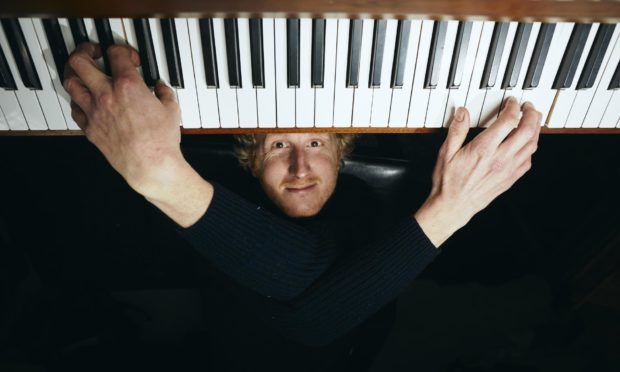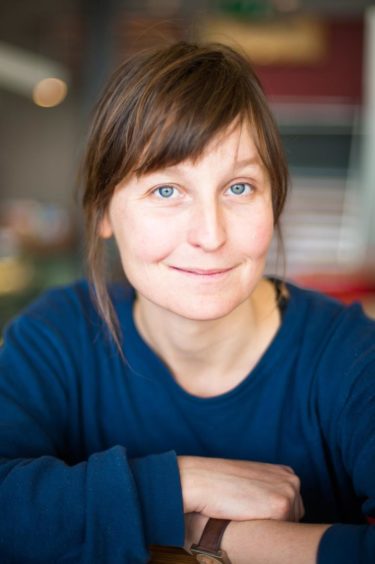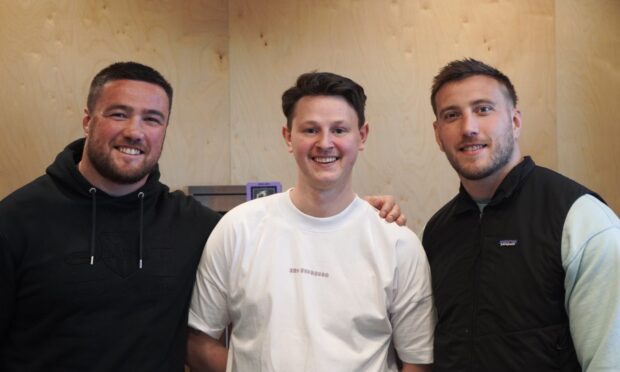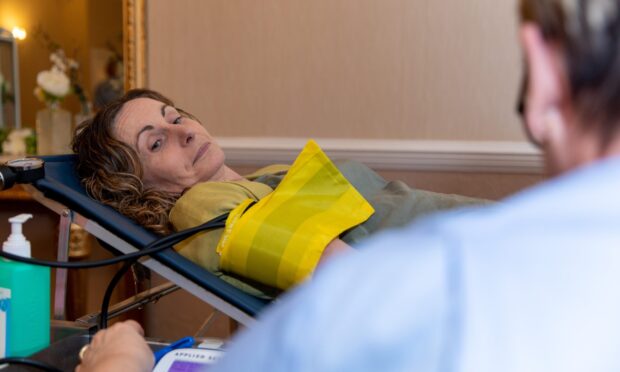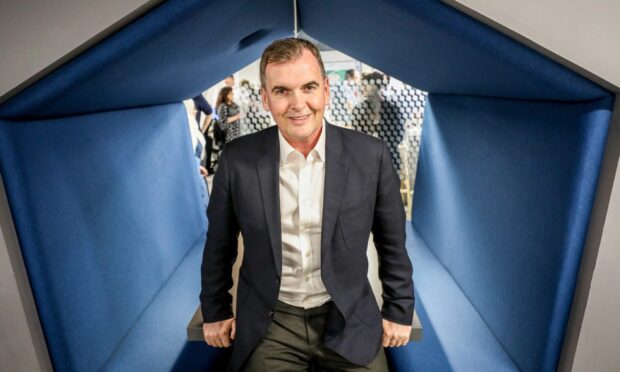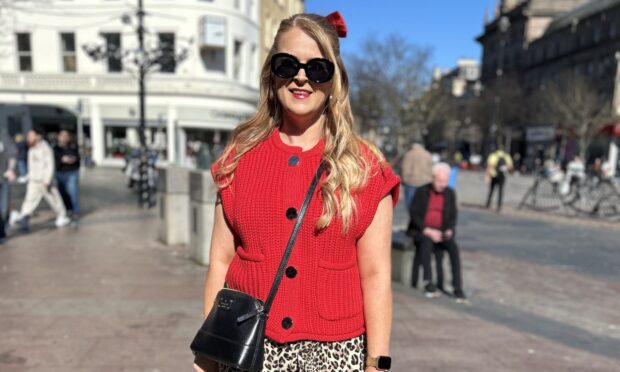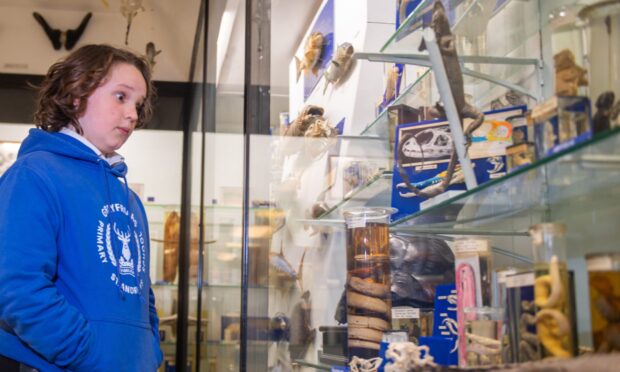As a boy, Will Pickvance had a strange affinity with the piano – he also wanted to be an astronaut.
“For me, because it was something I could do relatively easily, I thought that I must have somehow got there by mistake and I was going to get found out,” he recalls.
“As a kid it seemed wherever I went there were jobsworths trying to stop me from playing – there would be a piano in school that you’re not allowed to play.”
Edinburgh-based Will, 43, who describes himself as “half-man, half-piano” is preparing to present his new family show First Piano on the Moon live online with Horsecross Arts.
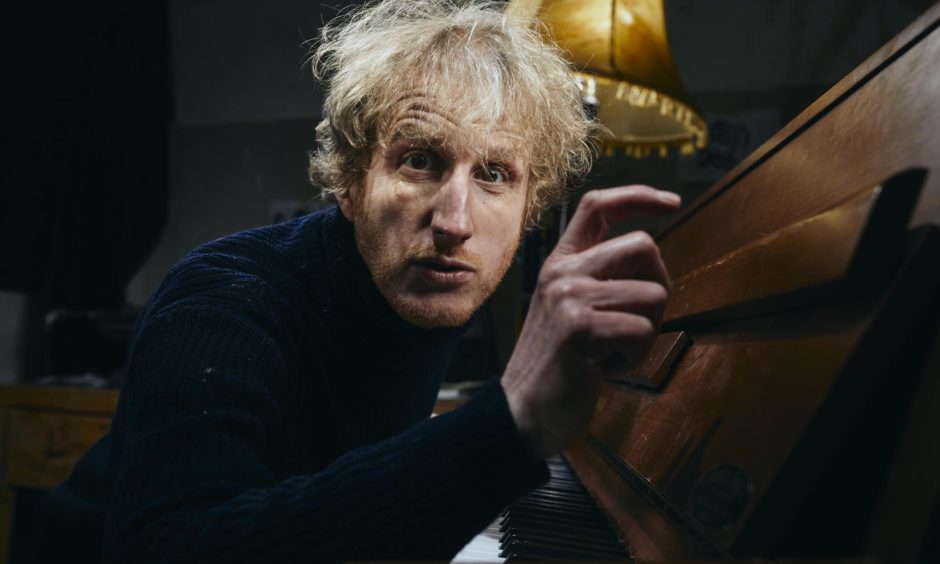
It tells the story of a boy who daydreams of playing in front of a large, live audience. When his dream comes true, he should be excited, but instead worries the world will discover the truth: he can’t really play the piano – he can only mess around and make people laugh.
“It definitely has an autobiographical theme,” explains Will. “When we are working on it and talking about the character I semi-imagine the character as someone who isn’t me – but it largely is me.
“My starting place with this were things like imposter syndrome, I suppose. I always felt whenever I had any success with the piano I was asked to do things and was put on a pedestal within the realms of my local school.
“The teachers used to be mildly surprised when they discovered I could actually play as they wondered when I would ever have had the time to coordinate my two hands!”
Musical influences
A self-confessed “improvising pianist by make-up”, Will says he can’t recall not being able to play the piano and draws inspiration from all kinds of music, from Bach to Fats Waller, Gilbert and Sullivan, and the Beatles.
He normally performs his one-man shows at Edinburgh’s Festival Fringe in August before heading off on tour to destinations such as Australia, America and China. First Piano on the Moon premiered at the Fringe in 2019.
Instead of his usual 2020 touring schedule, Will and his partner welcomed a baby brother for their toddler son last year and – just to add to the chaos – also moved house.
Despite the flux, he has been able to work on a new version of the show with Perth Theatre’s artistic director Lu Kemp to be presented live via Zoom.
Will believes online theatre is now a whole new genre in its own right, and it’s just getting started: “From a performance point of view, sometimes online live gets pitted against live theatre and I don’t think they should be seen as direct competitors because the online stuff gives us options that we don’t have in live theatre.
“We can be much more intimate and we have to be much tighter with the framing of shots. We can also use different cameras to achieve different emotions – for example a confessional camera.
“I think we may in fact come to recognise this period as an important moment in changing art practices.”
Lu Kemp says Horsecross was buoyed by the success of its festive pantomime, Oh Yes We Are! A Quest For Long Lost Light And Laughter, which was also presented live online after tier three restrictions scuppered plans for socially-distanced performances.
Families tuned in from 25 countries across the world during its run, reaching people who wouldn’t normally have been able to see the shows.
“It was hard to convince people to join us in it as an audience before, whereas now there’s a growing wave of understanding of what’s possible and the ease of it,” explains Lu.
“That liveness and that relationship between Will and the audience is really important to the piece. It’s not interactive, but that Will can talk to his audience is really important.
“We hope that we are making a show that can be repeated and that we can partner with other theatres and do it again and again because we can reach people wherever they are.”
Live broadcast
First Piano on the Moon will have two live broadcasts from Will’s studio at Summerhall arts centre in Edinburgh on Saturday March 13 and there will be a short Q&A with him afterwards. There are also online performances for schools next week, ahead of the public performances.
The 50-minute show combines storytelling and music, mingling Mozart with an unlikely birthday invitation, a frantic chase through Salzburg, and the appearance of the maestro himself. It’s aimed at children aged seven and up.
Lu adds: “I think what this show is about is trying to demystify talent – something that appears to be enormously complex to something that is reachable through messing around and learning to craft that material.”
Will agrees that messing around can lead to creativity – but, equally, laziness can lead to complacency.
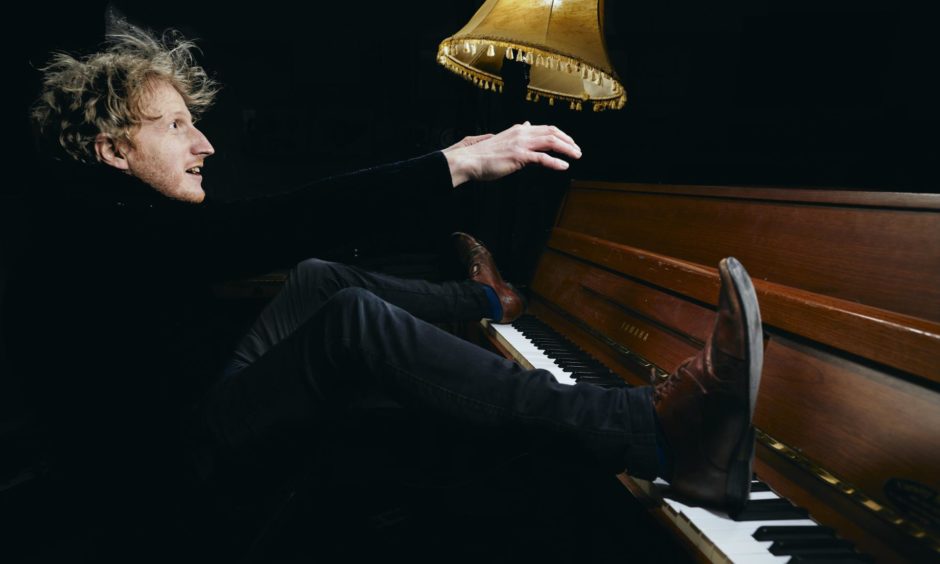
He reveals: “Because I could play the piano it always seemed to be quite out of kilter with my school reports, which used to be pretty unflattering. They didn’t tend to say I was stupid – but usually scatty, disorganised, messy.
“As I was starting to write this, I began to think these are the kind of ingredients you would want if you’re going to be making anything because these are ingredients of creativity and imagination.
“Daydreaming is something I did a lot of as a kid – and procrastination. Daydreaming as procrastination, really.
“Another aspect, I guess, was chickening out of things – sometimes you need to push yourself to go through a barrier and I used to chicken out of things that probably would have been useful to break through.
“If you have an innate talent it’s harder to work at it because you don’t have to work at it so hard to get results. I suppose the hard work is the difference between coasting and excelling.”
In the mess
Setting can also play a huge roll in live theatre and, in the case of this semi-autobiographical show, he performs from his studio: “There’s an authenticity to that you couldn’t achieve on a stage as you’re actually first-hand in the space – you’re in the mess that you are describing. I have to keep reminding myself that it’s a play.”
Over the years Will has performed his one-man shows at the Fringe, including Anatomy of the Piano (2015) and Pianohood (2017)
“The Fringe is a great place for launching shows because of the people you meet there and the opportunities that come about,” he says.
Will admits that pre-pandemic he had secretly wished he could press pause on life for a little while: “It’s not that I want to die, but when you’re getting offers of work you can’t say no. God intervened and pressed pause on the whole world. Weirdly, I think this last year of being able to work with Lu and make these videos and be ‘local’ has been amazing, from personal point of view.”
Big in China
After lockdown struck, Will says he became something of an online hit in China: “It’s quite funny being an internet sensation in China – then I put the video on YouTube here and it will have 500 views.”
After opening First Piano on the Moon in 2019 he was in China performing another until Christmas: “I did a lot playing in the autumn and I was even in Wuhan.”
The original plan had been to return to China in the spring of 2020 with First Piano on the Moon – but the world had other ideas.
With the China locked down in January, the Shanghai-based company that normally arranges Will’s shows had a new request: “They were calling me to ask if I could make some little videos to entertain the kids in lockdown with piano.
Loyal fans
“I quite enjoyed that. They bought me some theatre lights and equipment so I could do that. So I got into the habit of making those – and then we went into a lockdown ourselves.
“I carried on for a bit then I moved all the theatre equipment into my house and continued to do videos from home. I tried to make my sitting room look like my studio – I don’t recommend it.
“What happened was domestic mess became merged with professional mess. So suddenly I was tripping over light stands as well as children’s toys!”
One thing’s for certain, Will has a loyal fan base in China desperate for the day he can return: “They kept saying: ‘can you come next month?’ and we are still having that conversation. I think one day I will say ‘yes’.”
First Piano on the Moon will broadcast live on Saturday March 13 at 11am and 2.30pm.
For more information, click here
